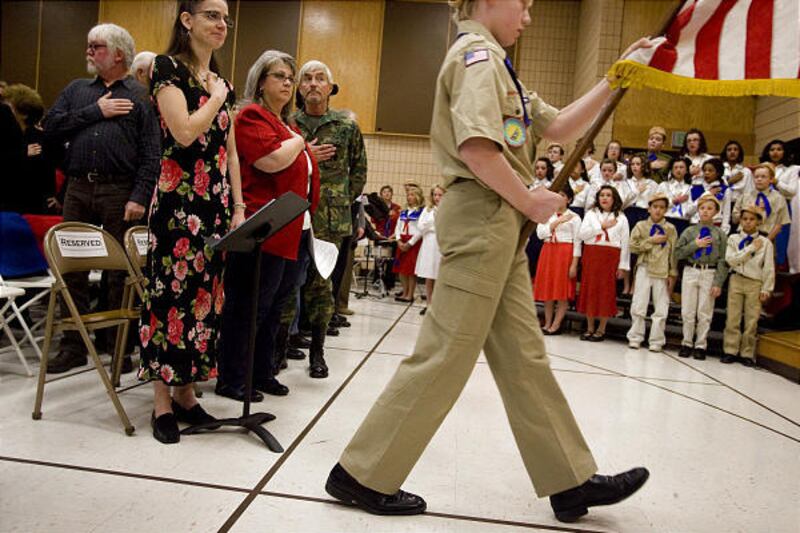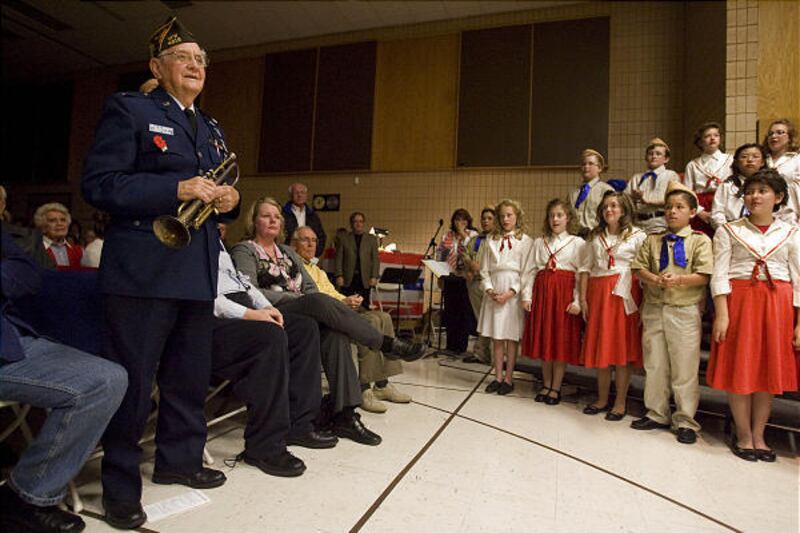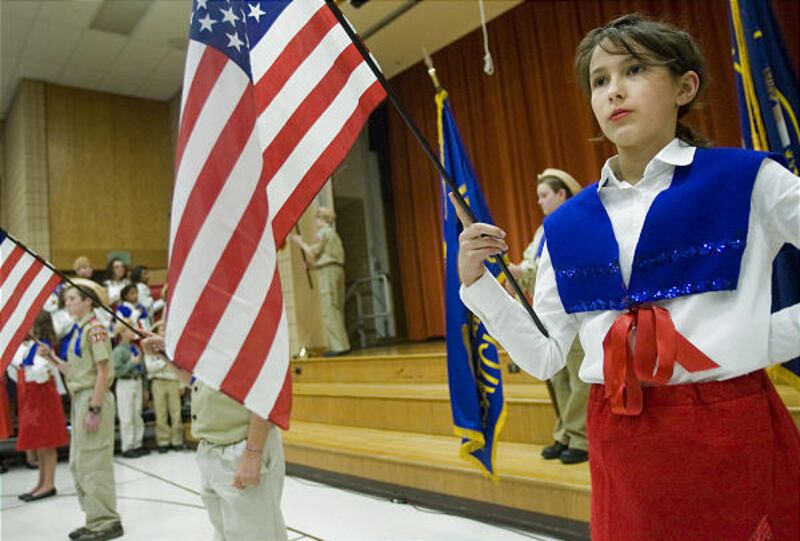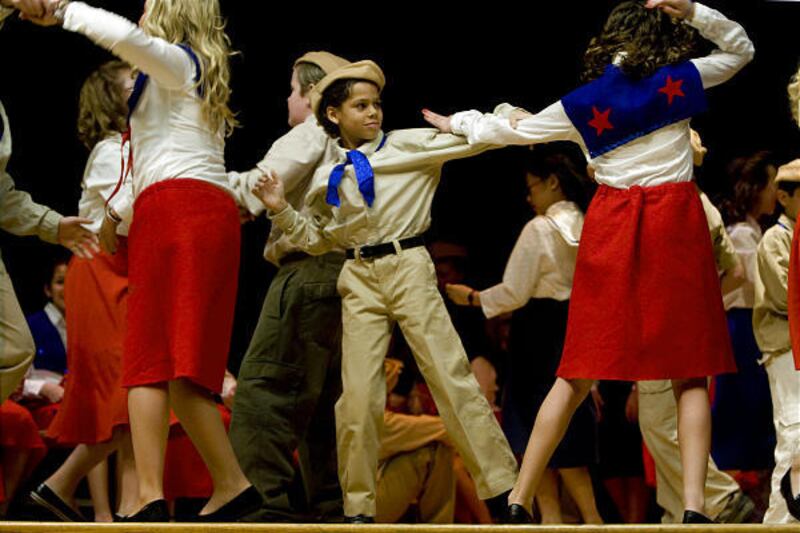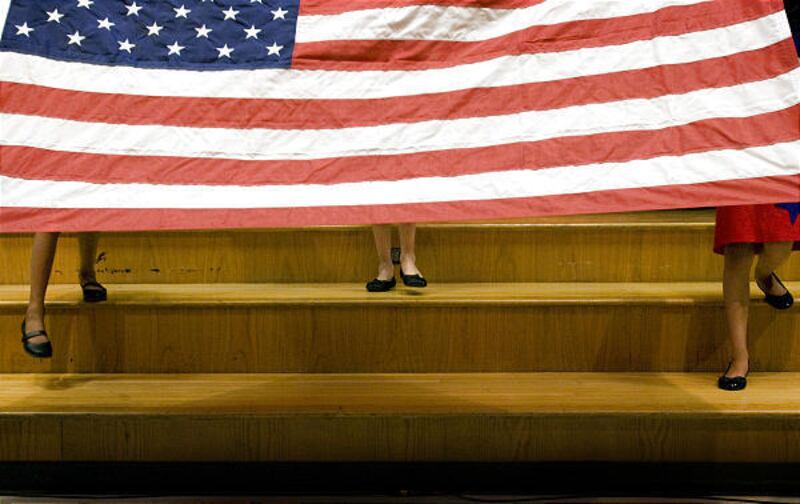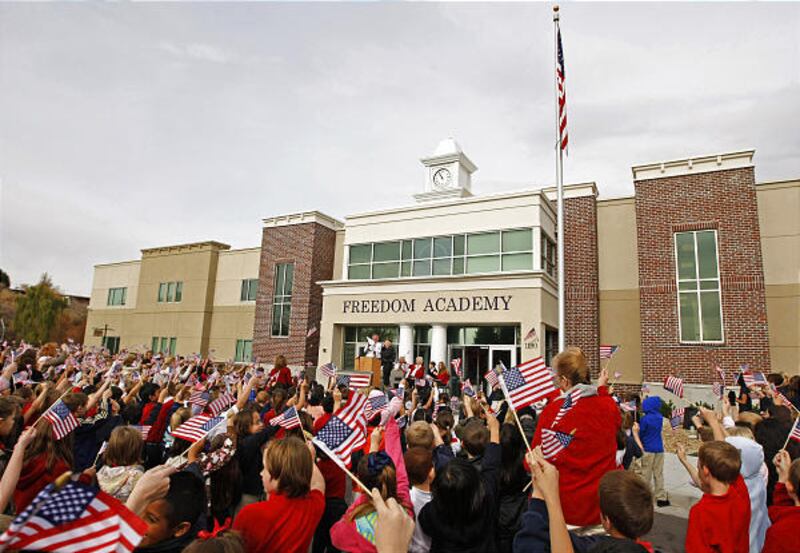Modern technology met the 1940s as Wasatch Elementary School sixth-graders danced to Big Band hits and historic radio recordings during their Veterans Day performance Wednesday.
As impressive as the Salt Lake City school's program was, it could be one of more than 50 schools with art specialists harmed by budget cuts as the Legislature heads into its 2010 session looking at a potential shortfall as high as $850 million.
"We hope we can continue our arts program. It anchors the curriculum and brings it alive in ways the kids never forget," said Wasatch Elementary Principal Julie Miller.
Dressed as WWII servicemen and jazz dancers, the sixth-graders performed for an audience of approximately 200, including about 30 veterans — many of whom are relatives of teachers and students at the school.
The veterans were honored with a nearly professional high-tech slideshow that displayed their photo, rank, military service and medals, with the voiceover of a relative introducing them.
"Spectacular," said veteran Don Mortensen, 80, of West Jordan, who served during the Cold War and retired from the Air Force in 1976. He was invited by his granddaughter Lydia Freed, 11.
Fifty-two elementary schools statewide could lose their art specialists funded through the Beverly Taylor Sorenson Arts Learning Program.
A law in the 2008 Legislative session implemented $15.8 million be spent over four years on the art specialists. Thirty-five percent of the funding was sliced during the 2009 Legislative session.
Veteran and former University of Utah professor of military sciences James Austin, 61, of Salt Lake City, who displayed Vietnam War memorabilia for the event, said, "I really think it's money well spent. Any time you can use all five of your senses to learn, it brings it home."
Miller said she doesn't believe events such as Wednesday's Veterans Day program could happen without the school's drama specialist, which costs the school $45,000 in salary, including benefits, and is funded through the Sorenson Program.
Izak Yerman, 11, said he has been learning in class about the sacrifices people made during WWII. "War is a terrible thing because of all the killing," he said.
Cadence Rudd, 11, said, "I don't think I would have survived a concentration camp."
Grant Anderson, 12, said he believes the hardest part is "coming back to their life after the war and also losing their friends."
Miller explains kids are more open to education and sustain learning through art. "The kids will never forget what they studied in sixth grade World History," she said.
In Wednesday's performance, students read excerpts of letters written by WWII servicemen to their families that described life at war. Letters from supportive family members talked about rationing sugar and coffee and conserving rubber tires and silk stockings for the war effort.
"I salute the people who put this together," said WWII Veteran Joseph Anderson, 88, of Salt Lake City. He fought in the Battle of the Bulge and was wounded and awarded the Purple Heart.
e-mail: astewart@desnews.com

